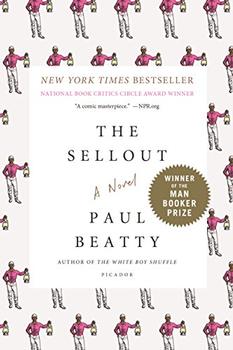Summary | Excerpt | Reading Guide | Discuss | Reviews | Beyond the Book | Readalikes | Genres & Themes | Author Bio

"Prior to declaring independence in 1957, the West African nation of Ghana was comprised of what two colonies?"
I didn't know the answer. I cocked my ears for the roar of the rocket-propelled Batmobile screeching around the corner, but could only hear my father's stopwatch ticking down the seconds. I gritted my teeth, placed my finger over the red button, and waited for the time limit to expire.
"The answer is Togoland and the Gold Coast."
Obediently, as my father predicted, I pressed the button. The needles on the dial and my spine both straightened, while I watched myself in the mirror jitterbug violently for a second or two.
Jesus.
"How many volts was that?" I asked, my hands shaking uncontrollably.
"The subject will ask only the questions that are listed on the sheet," my dad said coldly, reaching past me to turn a black dial a few clicks to the right, so that the indicator now rested on XXX. "Now, please read the next question."
I began to suffer from a blurring of vision I suspected was psychosomatic, but nonetheless everything was as out of focus as a five-dollar bootleg video on a swap-meet flat screen, and to read the next question I had to hold the quivering paper to my nose.
"Of the 23,000 eighth-grade students who took the entrance exam for admission into Stuyvesant High, New York's most elite public high school, how many African-Americans scored high enough to qualify for admission?"
When I finished reading, my nose began to bleed, red droplets of blood trickling from my left nostril and plopping onto the table in perfect one-second intervals. Eschewing his stopwatch, my father started the countdown. I glanced suspiciously at him. The question was too topical. Obviously he'd been reading The New York Times at breakfast. Prepping for the day's experiment by looking for racial fodder over a bowl of Rice Krispies. Flipping from page to page with a speed and rage that caused the paper's sharp corners to snap, crackle, and pop in the morning air.
What would Batman do if he rushed into the kitchen right then and saw a father electrocuting his son for the good of science? Why, he'd open up his utility belt and bust out some of those tear-gas pellets, and while my dad was choking on the fumes, he'd finish asphyxiating him, assuming there was enough bat rope to tie around his fat-ass hot-dog neck; then he'd burn out his eyeballs with the laser torch, use the miniature camera to take some pictures for bat-posterity, then steal Pop's classic, only-driven-on-trips-to-white-neighborhoods sky-blue Karmann Ghia convertible with the skeleton keys, and we'd bone the fuck out. That's what Batman would've done. But me, cowardly batfag that I was and still am, I could only think to question the question's shoddy methodology. For instance, how many black students had taken the admissions test? What was the average class size at this Stuyvesant High?
But this time, before the tenth drop of blood had landed on the table, and before my father could blurt out the answer (seven), I pressed the red button, self-administering a nerve-shattering, growth-stunting electric shock of a voltage that would've frightened Thor and lobotomized an already sedated educated class, because now I, too, was curious. I wanted to see what happens when you bequeath a ten-year-old black boy to science.
What I discovered was that the phrase "evacuate one's bowels" is a misnomer, because the opposite was true, my bowels evacuated me. It was a feces retreat comparable to the great evacuations of history. Dunkirk. Saigon. New Orleans. But unlike the Brits, the Vietnamese capitalists, and flooded-out residents of the Ninth Ward, the occupants of my intestinal tract had nowhere to go. What runny parts of that fetid tidal wave of shit and urine that didn't encamp itself about my buttocks and balls ran down my legs and pooled in and around my sneakers. Not wanting to hinder the integrity of his experiment, my father simply pinched his nose shut and motioned for me to proceed. Thank goodness, I knew the answer to the third question, "How many Chambers are in the Wu-Tang?" because if I hadn't, my brain would be the ash-gray color and consistency of a barbecue briquette on the Fifth of July.
Excerpted from The Sellout by Paul Beatty. Copyright © 2015 by Paul Beatty. Excerpted by permission of Picador. All rights reserved. No part of this excerpt may be reproduced or reprinted without permission in writing from the publisher.




Most of us who turn to any subject we love remember some morning or evening hour when...
Click Here to find out who said this, as well as discovering other famous literary quotes!
Your guide toexceptional books
BookBrowse seeks out and recommends the best in contemporary fiction and nonfiction—books that not only engage and entertain but also deepen our understanding of ourselves and the world around us.